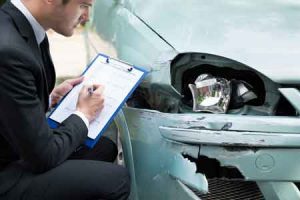In many areas you can pick the body shop for which you want your car repaired. Many people have no idea they can do this. They usually take it to the body shop the adjuster of the insurance company tells them too. Picking the best body shop for fixing your car is tough to say the least.
Finding the best Body Shops to fix your car
There are good body shops that do excellent work, and then there are some that are not as good. The quality of work you expect from your body shop should be excellent. The type of repair also can come into plays as far as quality. You may have an item replaces such as a bumper or a fender, or they may just repair it. Body Shops are allotted time, much like a mechanic on flag time to repair and replace items on a damaged car.
Reviews
Reviews tell a lot about a Body Shop and the quality of their work. However, many people don’t understand the challenges involved in fixing a damaged car. So take reviews for how good a body shop is with little weight, unless they are all bad.
Family & Friends
Family’s who have young driver may have a body shop on retainer much like an attorney. Insurance rates on young drivers are expensive. So, many Families just pay cash to a body shop to avoid filing a claim. These folks are going to know has the best body shop in town to fix your car.
Insurance Adjuster
Insurance adjusters are going to refer to a DRP that works with them. A DRP is direct repair facility. These Body Shops repair your car in the way the insurance company wants it repaired. However, that doesn’t mean it’s not a good repair. In most cases, it has a lifetime warranty. I personally don’t like DRP’s.
Get several estimates
If you have a personal injury case, you may want several estimates. Furthermore, in some instances the estimates can range from several dollars to hundreds. Its always wise to ask if it is a complete estimate or will there be a supplement. You may want to ask if they are using new factory parts, re manufactured, or used.
Questions to ask the body shop
Get several estimates from body shops, but don’t compare them too harshly. Sometimes adjusters miss things to put on the estimate while others catch it. Your car will still be fixed properly, they will just a supplement.
Does the shop have a lifetime warranty?
Most reputable body shops will over a lifetime warranty on the performed on your car. In some instances it will transfer when you sell the car. However, in most cases it does not. This lifetime warranty covers the body shops work to the structure, panels, etc. On the other hand, it will not cover mechanic parts, such as radiators, condensers, axles, etc.
Do they have experience working on your type of car?
Do you have a Porsche or Tesla? You may need to find a body shop that specializes in these types of cars. Most body shops can fix any car, but some cars are put together completely different from what we would call a mass production automobile. There are specialized body shops who fix nothing but these rare cars.
How long have they been in business?
I have seen body shops come and go. If they are offering a life time warranty with their work, but they close down next week, what do you do? Only the strong with survive in this industry. So stick with a shop that has been open for more than 5 years. If they have made it through five years, they will probably be around for a while. 10 years or more is much better.
Have they worked with your insurance company before?
Most shops will work with any insurance company. They do not have to be a DRP to fix your car because you have state farm. In most cases, you just take your car to the shop of your choice, give them a claim number and they take care of everything else. Your insurance company may have stipulations on how they fix your car. They may repair your front bumper instead of replacing it to save money.
What is the likelihood that the estimate will go up once the repairs have started?
That depends on the damage done to your car. If you have a scratch or dent on your bumper, more than likely it won’t go up. If you have serious damage that requires disassembly, the estimate will go up in the form of a supplement. You as a customer never have to worry about this. The body shop deals with the insurance company directly on the extra damage. If you were paying out of pocket, you would want them to do a very thorough estimate.
What is a DRP or direct repair facility
A direct repair facility has contracts with insurance companies. They fix cars the way the insurance company wants them to. In most cases these repairs have a lifetime warranty. A DRP will have you in a rental car pretty quick. An adjuster may suggest you take your car to a DRP, but you don’t have too. You can choose any body shop you wish to have your car repaired.
Picking the best body shop
Picking the best body shop for you vehicle repair is not that hard with the right tools in place. If you chose a shop that is not a direct repair facility, that does not mean the work will be non satisfactory. Most reputable body shops have a lifetime repair warranty no matter if they are a DRP or not. All body shops will work with just about any insurance carrier.


I got my car dented, so I need to get it fixed. It makes sense that I would want to find a good car body repair shop to handle this for me! I’ll be sure to find one that has a good reputation. That way, I can ensure that they do a good job on my car.
I was in a bit of a car accident, and my car got scraped. It makes sense that I would want to find a good repair shop to take a look at it for me! I’ll be sure to ask my friends and family for referrals. That way, I can ensure that I find someone qualified.
I bumped my car in a bit of an accident, so I need to find someone to fix the dents. It makes sense that I would want to find a good body shop to take care of this for me! They would be able to ensure that it ends up looking normal again. I’ll ask my friends and family for referrals on who to get for this.
I’m glad you explained that it is wise to ask for complete estimates when looking for an auto body shop to use. My wife was driving home from picking the kids up from their karate class last week when she got into a small fender bender. These tips are going to be very helpful to us because we need to find someone that can fix the side of our car that has a big dent in it now.
I agree that reviews would tell you a lot about an auto repair shop. I could see how a lot of positive or negative reviews could push you away or towards a certain shop, so it would be good to check those beforehand. Next time my car has an issue, I’ll have to make sure that I look at the average reviews for a shop before I choose one.
I love that you talked about the warranty that some places have and how they might be useless. My son needs to find a collision repair shop because he just got into a wreck. I think it’s smart to find a place that has been around for at least 10 years before you go there.
Thanks for advising finding a collision repair shop that has been open for over 10 years and will work with your car type. My uncle got in a car accident last week on his way home from a fishing trip. He is needing to find a collision repair service, so I will pass these tips over to him to help him pick a good one.
It was really helpful when you said to find one that has been open for 5 years or more. My husband was recently in a small car accident that caused a dent in his car, and he wants to get it fixed soon so that it could look nice aging, and he wants to make sure that he finds a good shop to do it. I’ll make sure to pass this information along to him so that he can know what to look for when searching for an auto body repair shop.
That’s a good idea to ask about what kind of warranties the shop offers for their structural body repairs. My car was t-boned as I was crossing an intersection two days ago, so I need to take it to an auto body shop to be fixed. I will keep in mind to ask about warranties, pricing, and experience, as you suggested.
I loved how you mentioned that you can tell a lot about a body shop when looking at reviews. Last night I got into a small car accident that left a huge dent in my van, and I want to find a shop that can repair it as soon as possible. I’ll make sure to keep this information in mind as I search for an auto body repair shop that can repair my van!
I just got into a car accident about two days ago, and this incident tremendously damaged my bumpers, that’s why I’m currently looking for an auto collision repair service. I’m glad you shared this; I’ll make sure to seek complete estimates from different shops. Also, I’ll keep in mind to ask if they’re offering a lifetime warranty because according to you, this will be able to cover panels and structures.
I really loved that you said that you need to stick with a shop that has been open for more than 5 years because only the strong ones will survive this industry. This is something I had not taken into account, and I feel like it is better to check their reviews and experience more than how long they have been in business. I am planning to ask a buddy of mine to give me some referrals to auto repair shops so I can compare them and their costs and see what would be the best option for me.
Thank you for pointing out that we should be looking for auto repair shops that have been around for 5 years or more. My father’s car recently got hit from the rear while he was waiting for the stoplight at an intersection. He wasn’t hurt but his rear suffered a big bump so he’ll have to bring it to a repair shop soon. I will definitely share with him about finding an experienced auto shop for his car repair.
I liked what you said about how lifetime warranties may be offered and may be transferred. My cousin has been having a hard time with her car because there is a dent on the door that makes it difficult to open or close. She would really like to get some help from a professional so that she can drive it safely.
I like how you suggest getting several estimates from different repair shops if you need bodywork for your car. My brother told me that his son hit a tree with his truck and the back bumper needs to be repaired. I will recommend him to look for a certified collision repair center so that he can be assured that his truck will be properly fixed.
I like your suggestion to pick a body shop that’s been around for a while to make sure we can rely on them to uphold any warranties they offer. My husband wants to find a reliable auto body shop for his sports car because the rear bumper was damaged in an accident at an intersection over the weekend. Thanks for teaching me how to evaluate auto body repair services so we can be sure to pick a good one!
These are all good points on how to find a good auto shop. I agree that you want to get a few different estimates in order to know that you are getting a good deal. My brother recently got in a small fender bender, so he’ll have to find an auto body shop to help out.
Thanks for the tip to find a shop that’s worked with our insurance company in the past to make sure all stipulations are followed. My husband needs to find a collision repair service for his work truck that was involved in an accident earlier this week. I’m glad I read your article and learned what to consider as I help him look for a body repair shop!
I definitely agree with you that it is advisable to read the reviews prior to choosing an auto collision shop to have our car repaired following an accident. My niece got into an accident recently and she is looking to have her car fixed since it is dented in a few spots. I will advise my niece to read the reviews and compare the ratings before she brings in her car.
It made sense when you said that we should ask what parts they’ll be using when we get estimates from different auto body shops. I scratched up the front of my car pretty badly against concrete post when trying to park in a tight spot at the store this morning. I’ll need to find an auto body shop to repair the dents soon, and your suggested questions should help me feel confident in the service I end up choosing!
You make a great point about getting a body shop that specializes in your make and model. I drive a truck and it has 4 big dents in the tailgate. We’ll have to consider getting a shop to repair the gate so I can sell the car soon.
It’s good to know that we shouldn’t be too harsh when comparing estimates although it is a good idea to get several. NOw that I think about it, it would be important to find a body shop experienced with ADAS calibration if our feature has one of those systems installed for driver safety and convenience. Thanks for teaching me how to find a good collision repair service if I ever find myself needing one!
I found it interesting how you mentioned that not too many people know they can choose a body shop themselves. My brother is considering looking for a repair specialist to fix the front bumper on his car because someone backed into it last week at the mall. It seems sensible for my brother to contemplate taking his car to a reputable professional to help make it look as nice as possible again.
This is some really good information about accident repairs. My cousin got into an accident a few days ago and needs to get his car fixed. I like that you pointed out that it would be smart to look into getting a lifetime warranty. That does seem like it could make getting any future repairs done easier.
It’s great that you talked about looking for an auto body shop that provides warranties. Recently, my brother had a minor car accident, and he thinks he could save his car with the help of a professional. That’s why I believe your article will help my brother find someone to repair his vehicle. Thanks for the tips on what to consider when hiring a body shop for your car.
It makes great sense to look for an auto body shop that has been in business for at least 5 years. My brother-in-law’s car was dented pretty badly in an accident and he needs to find a collision repair service. It will be super helpful for him to consider a shop’s experience before he chooses them like you suggested.
Thanks for pointing out that working with an insurance adjuster is also important when planning to go to an auto repair shop. I’m interested in looking for one because I’m planning to get my car checked for damages. I recently got into a minor collision accident so I want to be able to assess the damages as early as I could.